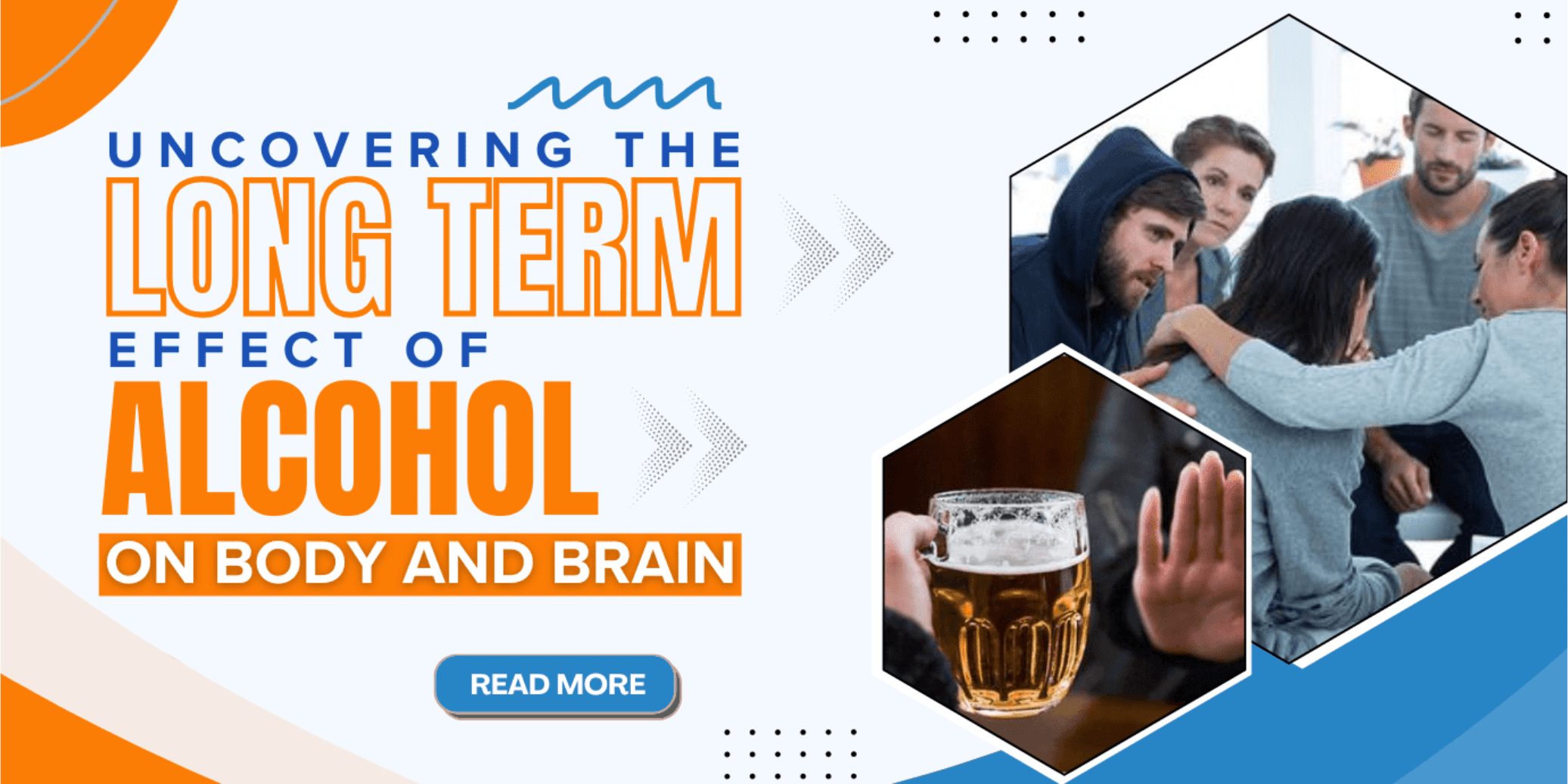Uncovering the Long-Term Effects of Alcohol on the Body & Brain


Alcohol is one of the most widely used substances across the world. Whether it’s your casual drink with friends or celebration or just a way to unwind alcohol plays a very important role in many cultures. No doubt occasional drinking might not seem harmful but excessive and long-term alcohol consumption can lead to serious health issues. Unfortunately, people don’t understand the long-term damage alcohol can cause until it’s too late. Understanding effects of alcohol on the body is really important. By recognizing the risks, you can take steps to reduce your intake, seek help when needed, and also improve your overall well-being. Here you can learn everything about the effects on your body and brain!
Your liver plays a crucial role in breaking down alcohol. But excessive drinking puts a lot of strain on your liver leading to severe health issues. One of the initial stages of liver disease is fatty liver. It is where the fat starts accumulating in your liver cells. It generally goes unnoticed but can progress to more severe conditions if you continue drinking. Inflammation of the liver because of excessive alcohol can also happen. Symptoms generally include jaundice, nausea and abdominal pain. Cirrhosis is a condition where your healthy liver tissue is replaced with scar tissue. This reduces your liver function. Besides being irreversible damage the condition can also be life threatening.
Your risk of going through heart-related issues completely increases when you consume alcohol beyond the limit. Drinking heavily can cause a condition where your heart beats too fast or too slow. Chronic alcohol abuse can weaken your heart muscles, making it challenging for your heart to pump blood effectively.

When you call our helpline, an admissions navigator is there to listen to you, answer any questions you have, and provide the support that you need—all 100% confidentially.
Besides learning about metabolization of alcohol it’s very important for you to understand the alcohol effects on your brain. Alcohol disrupts the short-term and long-term memory making it challenging for you to recall information. Heavy drinking can cause mental fog and difficulty concentrating on your tasks. If you are taking alcohol for a very long time, it can shrink brain tissues leading to permanent cognitive decline.
Alcohol abuse increases the risk of severe neurological conditions like dementia which can speed up brain aging. A severe brain disorder caused by vitamin B1 can lead to problems like memory loss, confusion, and loss of coordination.
Alcohol doesn’t just impact your body it also has a major impact on your mental health. It can disrupt brain chemicals that leads to depression and anxiety. Heavy drinking can cause hallucinations. Furthermore, alcohol can impair your judgment, making you act impulsively and experience extreme mood changes.
Alcohol is addictive because it rewires your brain’s reward system. So, you need to connect with experts who help quit drinking alcohol. There are different signs of dependency which includes drinking larger amount to feel the same high again. You might even experience withdrawal symptoms like nausea sweating and shaking when you are not drinking. You fail to stop drinking despite negative consequences.

Besides learning how long does alcohol stay in your system it’s very important for you to understand when casual drinking turns into dependency. Some of the most common warning signs for drinking alone or in secret. At times you might feel guilty or ashamed without drinking. If you’re wondering how does alcohol work, then you must know that when you are dependent you might use alcohol to cope with stress or emotions. The signs also include expressing breakouts or memory loss. You would be prioritizing drinking over work families or hobbies. Facing financial or legal troubles because of drinking. If you are experiencing these symptoms, it might be time for you to seek help from experts who help you understand the metabolization of alcohol.
We’ll instantly check the coverage offered by your insurance provider.
So above all you need to know that alcohol can have serious long-term impacts on your body and brain. If you or your loved ones struggle with alcohol dependence, remember that help is available. Seeking support and making positive life changes can lead you to a healthier and happier life, the journey to recovery might be challenging initially but it is always worth it.